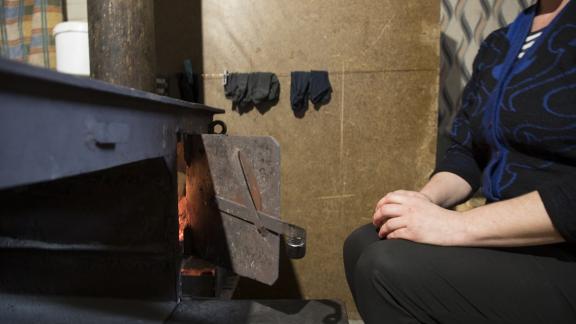Natela (not her real name) got married a few days after her 16th birthday. She would have preferred to get a job and start out on her own, but when she tried “they asked me about my education and I had none,” she says. She explains that she had no particular wish to be a housewife but did not have any other options.
Her story is similar to many women across Georgia whose life choices are limited because they have been denied a full education, and who get married young and are then expected to raise a family. “All the members of the family are my responsibilities, my mother-in-law, father-in-law and brother-in-law as well as my kids,” she says.
Natela is from a rural area near Sighnagi, a tiny town in the eastern region of Georgia. Job opportunities in the region are poor, and access to healthcare, contraception and sexuality education are incredibly restricted for Natela and her community. Due to high costs and lack of public transport, the last time she went to the doctor was 10 years ago, when she faced her third unintended pregnancy and needed to access abortion care.
Natela describes her need for abortion care during that period: “My kids were young and I was not working. My mother and father-in-law were old and my brother-in-law was sick at my home,” she says. Not only could she not afford to raise another child, she already faced a huge amount of responsibility caring for the whole family and adding more on her shoulders felt impossible.
Like most Georgians, Natela comes from an Orthodox Christian community and she felt conflicted about accessing abortion care because of her faith. “I had to confess a lot,” she says. She feels it is wrong that women like her are placed in this position through government neglect in the first place. Trying to give her children a good life with poor economic opportunities is very difficult, she says.
Natela’s experiences are incredibly common. A multitude of reasons, from being denied sex and relationships education to the state’s failure to ensure access to contraception, mean that most of the women Natela knows in her neighbourhood have been confronted with unintended pregnancies. Despite this, Natela says her community still stigmatises and criticises women who have sought abortion care.
Natela feels left behind by her government and believes that more needs to be done to provide jobs and education to her community. “We need much more support. There are no jobs. There should be all types of aid from the government but there’s no such thing.” Still unable to access contraceptive care, Natela relies on, “the will of God for me to not get pregnant.”
In the future, Natela hopes that instead of taking on family responsibilities, young women will be given more opportunities to continue their education: “I would suggest that no one do the same thing as me. Every woman should finish school, have her own profession and… after that decide her relationships,” she says.
IPPF’s Georgian member HERA XXI is working to ensure sexual and reproductive health care and sexuality education for young people and women like Natela across the country. Find out more about their work and the obstacles to women’s reproductive freedom in Georgia in our blog series.
Credits main photo: Jon Spaull/IPPF EN
when
country
Georgia
Subject
Abortion Care
Related Member Association
Association HERA XXI - Georgia









